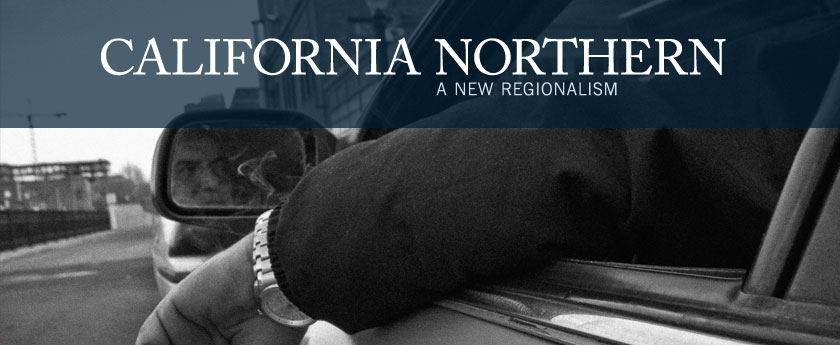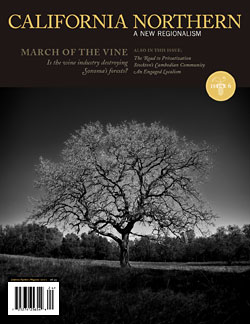Lucky Chances
By Vincente R. Viray
My aunt Evangelina talks about my father while she cooks breakfast.
“Before he started gambling, it was women. He would juggle two, three girlfriends at a time, thinking he was so smooth, so macho.” She eases paper-thin fillets of tuyo—Filipino bacon, she calls it—into the skillet, filling the kitchen with the briny funk of preserved fish sizzling in oil. “But he was always mixing up their names. He would call Susan ‘Nora’ or Virgie ‘Anna Lisa.’ That’s how he got caught.”
I’m ready to sleep after spending the last two days driving from Santa Fe to Sacramento, but I will myself to pay attention. I haven’t been inside my aunt’s house in over five years, not since my parents’ divorce. To turn down her offer of food would insult her hospitality, reflect badly on the way my mother raised me.
I get up from the table and pour more coffee into my mug. The kitchen is exactly how I remember. Marbleized Formica counters. Brick linoleum floor. An old Wedgwood stove. All perfectly maintained. What would she think of my mother’s house in Daly City if she were to see it now? The piles of unsorted mail. The milk cartons stuffed with egg shells and vegetable trimmings.
“Can I help with anything, Auntie?”
She waves me away with the spatula and continues her story.
“Well your Ma, she taught him a lesson. He once called her Vilma, the name of another girl in her sorority. And do you know what she did? She threw a plate of spaghetti at him. Right in the middle of Casa Armas, the fanciest restaurant in Manila.”
My aunt is a small woman, barely five feet tall, but the laugh that erupts from her belongs to someone twice her size—a full-bellied guffaw that makes her whole body shake. Worried she’ll knock the skillet off the stove, I gently move her away.
“Let me show you,” she says, still gasping for air. She washes her hands and pulls out an old photograph of my father from the drawer. He’s wearing a cream polyester shirt splattered with red. “I took this when he got home. Your Lola was furious. She couldn’t get the stains out. But you see why all the girls were after him? He looks just like Elvis.”
“The Elvis Presley of the Philippines,” I say. And I’m not kidding. His hair is slicked into a pompadour and his clothes fit so tightly they may as well be painted on. Though his cheeks are still plump with baby fat, his lips are frozen in a half snarl, his nostrils flared, his eyes knowing.
“So handsome,” she says, moving the picture closer to her face. “He’ll get his looks back, just wait.”
My father is a vain man. He can’t walk past a mirror without checking his reflection. I’ve seen him primp and fix his hair in front of cars with tinted windows, indifferent to whether any passengers were still inside. If he weren’t so concerned about his face, my aunt tells me, he’d be dead. For months he ignored the deep pain in his upper back, the nausea, even the hard lump in his abdomen, but as soon as he noticed his eyes and skin turning yellow, he went straight to the doctor and asked for a prescription to clear up whatever infection was ruining his good looks. Only to find out he had pancreatic cancer.
Now he’s about to have surgery, and I’m staying at my aunt’s house to check him in and out of the hospital. Usually, I spend the entire summer break with my mother in Daly City, working temp jobs to help pay for my education. It’s part of the bargain we struck when I turned down a full scholarship at UC Berkeley to attend St. John’s College, a small, expensive private school in Santa Fe.
But this year she’s given me a dispensation, however short. Because he’s family. And for her, family trumps all. Family is why she stayed with him for so long. He’s the father of my children! Family is why she finally divorced him. I won’t let him gamble away this family’s future! And family is why I have to be there for him, even though he left her with a third mortgage. No matter what, he’s still your father!
When he walks into the kitchen, I barely recognize him. He looks like a baby, almost. A baby with the sunken eyes of an old man. His face is unlined, unnaturally taut, with the dull brown luster of wax paper. Except for the bulge in his stomach, he’s skeletal. Heavy flaps of skin hang at his joints. He moves slowly, deliberately, but when he sees me, he fills with energy and his voice comes out strong.
“Hey! B-Boy! You’re here!”
My name is Emilio, but since I’m the youngest, my parents have always called me B-Boy, for Baby Boy. I kiss him on both cheeks and give him a hug. In my arms, he’s a bundle of sticks. “Have some breakfast, Pa.” I pull out a chair and help him sit.
“You’re still growing, B-Boy.” He beams. I’m six-one, like Robert Jaworski, his idol from the Philippine Basketball Association. For him, height is my greatest accomplishment—better than graduating as high school valedictorian. “How many girlfriends do you have now?”
“Too many to count,” I say. “But only girls named Julie, so I don’t get confused.”
My aunt shoots me a look that says, Stop. “Why don’t you fix your Pa some champurrado before it gets cold?”
I crumble pieces of fish over a steaming bowl of rice porridge, removing as many of the tiny bones as I can.
“Have you seen your Ma?” he asks me.
“Not since winter break. I drove here straight from school.”
“Emilio.” His voice is suddenly stern. “You should never have gone to that school. How can you keep an eye on her and your sister from so far away? You’re the man of the house now.”
At that moment something flares inside me, and frail and diminished as he is, I want to reach across the table and knock some sense into him. What kind of man are you? I want to ask. What kind of man are you for dumping all your responsibilities onto me?
But I say nothing. I help my aunt with the dishes, then head downstairs and fall into a deep sleep.
This is an excerpt of “Lucky Chances”

